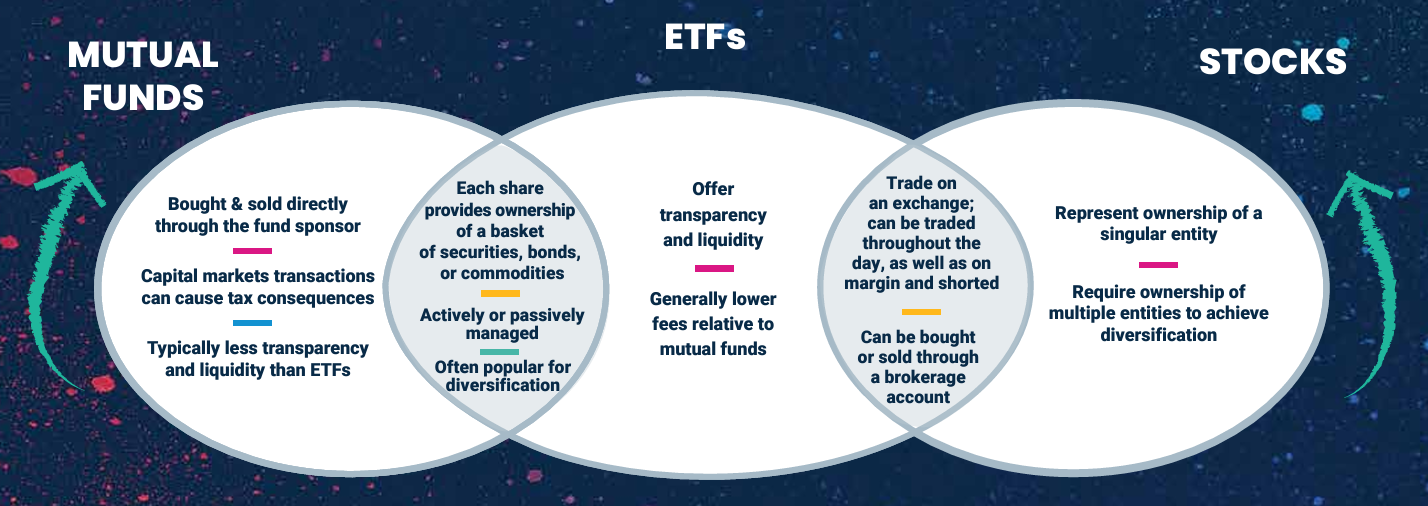The Intersection of ETFs, Mutual Funds, and Stocks
March 20, 2024
| Mutual Funds | ETFs | Stocks | |
|---|---|---|---|
| Bought & sold directly through the fund sponsor | ✓ | ||
| Capital markets transactions can cause tax consequences | ✓ | ||
| Typically less transparency and liquidity than ETFs | ✓ | ||
| Each share provides ownership of a basket of securities, bonds, or commodities | ✓ | ✓ | |
| Actively or passively managed | ✓ | ✓ | |
| Often popular for diversification | ✓ | ✓ | |
| Offer transparency and liquidity | ✓ | ||
| Generally lower fees relative to mutual funds | ✓ | ||
| Trade on an exchange; can be traded throughout the day, as well as on margin and shorted | ✓ | ✓ | |
| Can be bought or sold through a brokerage account | ✓ | ✓ | |
| Represent ownership of a singular entity | ✓ | ||
| Require ownership of multiple entities to achieve diversification | ✓ |
At Harbor Capital, we believe active ETFs deliver the best of both worlds, combining the opportunity to achieve diversification benefits in a single share (like a mutual fund) with the ability to trade those shares on an exchange with liquidity and transparency (like a stock).
Check out Harbor’s lineup of active ETFs managed by hand-selected and vetted investment teams with differentiated approaches.
For additional information, visit www.harborcapital.com.
Important Information
Investors should carefully consider the investment objectives, risks, charges and expenses of a Harbor fund before investing. To obtain a summary prospectus or prospectus for this and other information, visit harborcapital.com or call 800-422-1050. Read it carefully before investing.
Investing involves risk, principal loss is possible. Unlike mutual funds, ETFs may trade at a premium or discount to their net asset value. Shares are bought and sold at market price not net asset value (NAV). Market price returns are based upon the closing composite market price and do not represent the returns you would receive if you traded shares at other times.
ETFs are subject to capital gains tax and taxation of dividend income. However, ETFs are structured in such a manner that taxes are generally minimized for the holder of the ETF.
An ETF manager accommodates investment inflows and outflows by creating or redeeming “creation units,” which are baskets of assets. As a result, the investor usually is not exposed to capital gains on any individual security in the underlying portfolio. However, capital gains tax may be incurred by the investor after the ETF is sold.
Diversification does not assure a profit or protect against loss in a declining market.
Foreside Fund Services, LLC is the Distributor of the Harbor ETFs.
3658800
